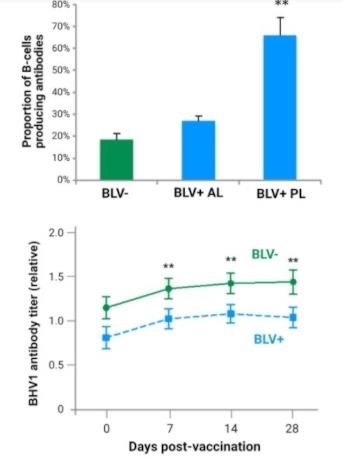“That is spider mite damage and that has been one of our tough challengers this year.”
Two-spotted spider mites thrive in hot, dry conditions. They can hope from different crops like soybeans to others like hops. The mites are a huge problem because Heine said they suck the nutrients from leaves.
“What’s dangerous about them is that you won’t notice that you have a problem until you’re too late often,” he said. “So, we’ve been every day out here scouting, trying to check every leaf, a lot of different leaves and looking for just these little signs before the leaves start to turn yellow and bronzing, because if you start to react when you have that happen then you’re already too late and they can quickly destroy half the plant.”
Mite damage can stunt the plant and affect the cones which is part of the hops plant used to brew beer.
Hop plants require a lot of water. They dry weather has forced irrigation systems to run for longer periods of time.
“This year, we’ve had less than two inches of rain recorded here for the entire summer,” Heine said. “We’ve been running irrigation I think only one or two days through the whole summer that we didn’t run the irrigation.”

Heine said with so much use this year, his drip irrigation system requires more maintenance.
One of the founders of the South Dakota Hop Growers Association Mark Bonnema owns Hoppy Trails Hop Farm in Iowa. This summer, he has also increased his irrigation levels to mitigate moister loss in the soil.
“I would rather have too hot and dry and supplement with extra irrigation rather than to have too wet and cloudy and the plants are diseased and can’t grow very well,” Bonnema said.
Downy mildew has been a problem during wetter conditions. This year, Bonnema said there has not been an issue with the disease because it cannot spread in dry conditions.
One concern Bonnema has is how the weather will affect the acid levels in his crop.
“I did notice last year that my what do you call it the alpha acid. That’s the bittering potential of the oils in the hop cones. And the alpha acids were a little bit lower than anticipated or expected last year.”
Bonnema researched the effects of hot and dry conditions on alpha acids last year. He found hops are not as bitter in a drought.
South Dakota has a small hop industry with only six farms are licensed to grow the crop commercially.
One of the owners and brewers of Woodgrain Brewery Jason Currie-Olson said consistent acid counts are important for a stable beer flavor.
“How it will affect us again is going back to will we have access to the hops we’ve been using from these local producers and will we be able to make a consistent beer, a consistent product because of the use of or the lack of the hops,” he said.
Woodgrain Brewery uses local hops whenever possible, but often, they have to purchase out of state hops. Currie-Olson said local growers cannot sustain the demand of local breweries.
Click here to see more...